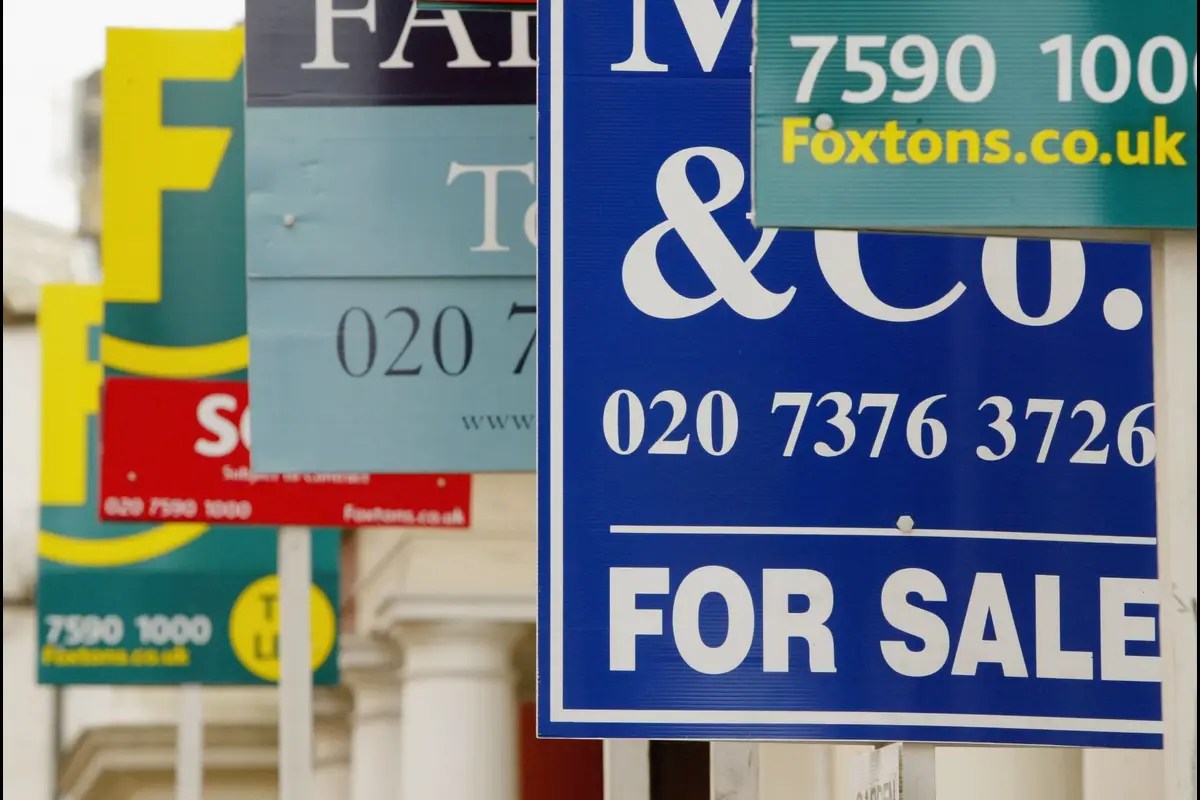Monday June 17, 2024 6:00 am
Renting remains significantly more affordable in Britain than buying a house with a five per cent deposit as lenders increase interest rates on home loans, according to the latest Hamptons Monthly Lettings Index.
Potential homeowners with a five per cent deposit are currently paying an average of £300 more per month in mortgage repayments than if they continued to rent, the data shows.
The financial burden is most pronounced in London, where buying a house costs an extra £775 a month, or £9,300 a year, compared to renting.
This is because the average mortgage interest rate with a fixed term of two and five years rose to 5.93 percent and 5.50 percent respectively between early May and early June. On December 7, the average two-year interest rate exceeded six percent for the last time.
Aneisha Beveridge, head of research at Hamptons, said: “High mortgage rates have pushed buyers with small deposits out of the market, forcing more households to rent for longer.
“The increase in monthly costs of buying a home with a small deposit has made purchases out of reach in most places south of Birmingham,” she added.
Data from the Bank of England shows that the average mortgage rate for buyers with a five per cent deposit is currently 6.1 per cent. To equalize the costs of renting and buying, mortgage interest rates would have to fall to about 4.2 percent.
It is a difficult period for potential buyers, who remain stuck in the rental market due to wage stagnation and economic turmoil affecting mortgage rates.
The Bank of England’s rate hikes have increased pressure on households, with the proportion of mortgages in arrears continuing to rise, new data shows.
Life isn’t much better for renters either, as competition for affordable housing also drives up rental prices, especially for smaller properties. Annual rental growth averaged about seven percent across the country this year, Hamptons said.
In his party manifesto, Labor leader Keir Starmer pledged to work with local authorities to prioritize first-time buyers in the housing market.
He also promised to “introduce a permanent, comprehensive mortgage guarantee scheme to support first-time buyers struggling to save for a large deposit with lower mortgage costs.”
The Conservatives have expanded their mortgage guarantee scheme, aiming to help more than 80,000 buyers over the next five years, and increasing the number of 95 per cent loan-to-value deals available.
But Beveridge said the effectiveness of these plans “will likely be determined by Threadneedle Street and not Downing Street.”
“The extent to which the Bank of England cuts rates will determine the number of potential buyers with small deposits more than the best-designed government policy.
“This analysis also suggests that in a world of high interest rates, the use of the Conservatives’ 0 per cent capital gains tax for landlords to sell to their tenants is also likely to be quite low.
“On the contrary, a ‘Help to Buy’ scheme is better suited to helping renters with small deposits become homeowners, especially when compared to the mortgage guarantee scheme,” she explained.
